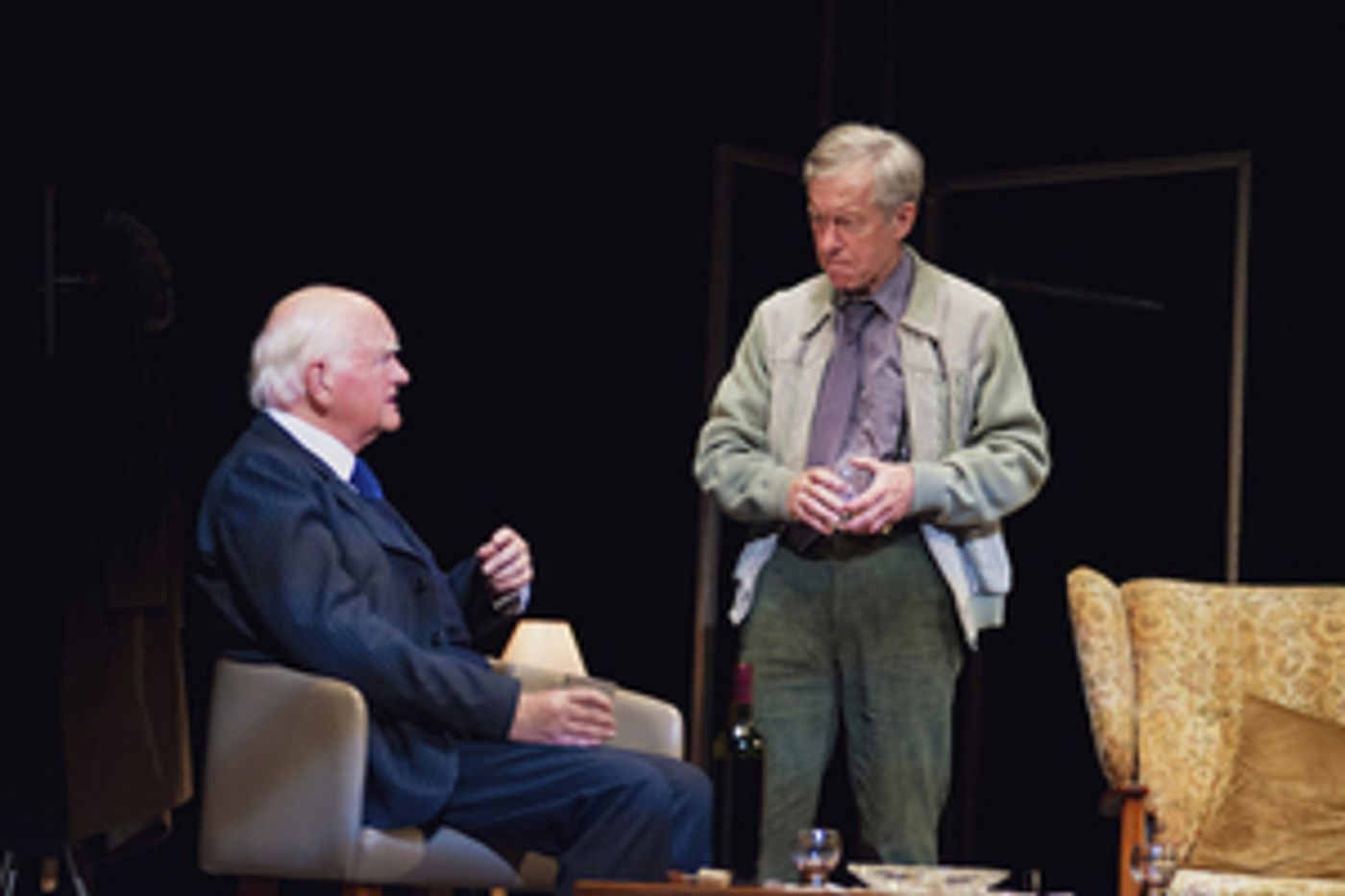Review: A SPLINTER OF ICE, Theatre Royal Bath
This meeting between Grahame Greene and Kim Philby is more history lesson than drama

![]() Theatre is no stranger to fictional renderings of famous get-togethers. There's One Night in Miami, where Cassius Clay (later Muhammad Ali), Malcolm X, Sam Cooke and Jim Brown celebrate at Hampton House Hotel in 1964 - the night Clay became world heavyweight champion. Malcolm X features again in The Meeting, alongside Martin Luther King. And in Copenhagen, the previous play on at Theatre Royal Bath, Nobel-winning physicists Dane Niels Bohr and Werner Heisenberg have a clandestine encounter.
Theatre is no stranger to fictional renderings of famous get-togethers. There's One Night in Miami, where Cassius Clay (later Muhammad Ali), Malcolm X, Sam Cooke and Jim Brown celebrate at Hampton House Hotel in 1964 - the night Clay became world heavyweight champion. Malcolm X features again in The Meeting, alongside Martin Luther King. And in Copenhagen, the previous play on at Theatre Royal Bath, Nobel-winning physicists Dane Niels Bohr and Werner Heisenberg have a clandestine encounter.
A Splinter of Ice, a new play by Ben Brown which is currently touring the UK, asks what would have happened if writer Graham Greene (Our Man in Havana, The End of the Affair, The Third Man) met his former MI6 colleague, double agent Kim Philby (played by Stephen Boxer), in 1987 - for the first time in 30 years.
It's a clever idea, placing Greene (convincingly portrayed by Oliver Ford Davies) in Philby's 'ode to ochre' Moscow apartment - all beiges, browns and yellows from designer Michael Pavelka - while attending a Peace Conference with other luminaries like Gregory Peck. (A good opportunity for a joke, as Peck photobombs Greene on the TV news.) Greene pops in for drinks, supper and a good chinwag.
The zither from The Third Man gets us into the spirit of things (well, it would, wouldn't it?) in this Original Theatre production directed by Alan Strachan, with Alastair Whatley co-directing. We're immersed in conversations about what life's been like for Philby (four marriages, reading days-old copies of The Times and loneliness) and Greene's success as a novelist and screenwriter.
Every once in a while, Philby's wife, Rufa, enters the room to offer Greene warm slippers (his shoes are sodden by Moscow snow) or announce dinner. Excellent Karen Ascoe takes on the role of Rufa with gusto, brightening the stage every time she appears. Perhaps she could have been incorporated more. One quiet conversation alone with Greene reveals a great deal - and moves the action on.
Although interesting questions are raised throughout the play - did Philby feel any remorse sending innocent men to their deaths through his double dealings, was Philby the inspiration for villain Harry Lime in Greene's award-winning The Third Man, and should a spy ever confess? - nothing really gets answered. Casting Greene in the role of inquiring journalist, firing off questions to his old friend like he's at a press event, makes for a pedestrian evening with more telling than showing.
More promising moments centre around friendship. Why did Greene stick by Philby when others vilified the traitor? It's a fascinating dynamic that I would love to learn more about. It's also clear how much Greene respected Philby and considered him a mentor - and, acting as an intermediary, even hints that the British authorities might now allow Philby to return home.
With conversation dominating, A Splinter of Ice would likely make a very good radio play (and it was well received as a filmed version online earlier this year), but lacks the tension to fully engage a theatre audience. It's less of an icy grip, more a shallow puddle of a history lesson. A shame at a time when we appear to be entering into a new Cold War.
My companion, who was very patient about missing some exciting UEFA footballing moments while we watched the production, summed up the evening: "Magic Monday served up 23 goals, whereas Theatre Royal Bath suffered a nil-all draw."
A Splinter of Ice is at Theatre Royal Bath until 3 July, then continues on tour
Photo credit: James Findlay
Reader Reviews
Videos

